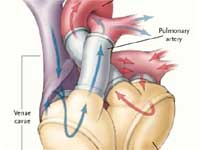Just In
- 1 hr ago

- 3 hrs ago

- 4 hrs ago

- 4 hrs ago

Don't Miss
- Technology
 Meta Ray-Ban Smart Glass Users Can Now Make Video Calls on WhatsApp
Meta Ray-Ban Smart Glass Users Can Now Make Video Calls on WhatsApp - Movies
 Deadpool & Wolverine Cast Fees: Ryan Reynolds' Salary 150% HIGHER Than Hugh Jackman; Guess MULTI-CRORE Fees
Deadpool & Wolverine Cast Fees: Ryan Reynolds' Salary 150% HIGHER Than Hugh Jackman; Guess MULTI-CRORE Fees - Sports
 DC vs GT My11Circle Prediction IPL 2024 Match 40: DEL vs GUJ Fantasy Tips & Expert Picks
DC vs GT My11Circle Prediction IPL 2024 Match 40: DEL vs GUJ Fantasy Tips & Expert Picks - News
 Tamil Nadu Weather Update: 9 Districts Over 40°C, Salem Boils At 42.3°C; Heatwave Warning Issued
Tamil Nadu Weather Update: 9 Districts Over 40°C, Salem Boils At 42.3°C; Heatwave Warning Issued - Finance
 Rs 55/Share Dividend Announced: Multibagger Refineries PSU Declares 72% Jump In Q4 Profit
Rs 55/Share Dividend Announced: Multibagger Refineries PSU Declares 72% Jump In Q4 Profit - Travel
 Mumbai Opens BMC Headquarters For Exclusive Heritage Tour
Mumbai Opens BMC Headquarters For Exclusive Heritage Tour - Automobiles
 The Rise and Fall of the TVS Jive: India's Pioneering Clutchless Motorcycle
The Rise and Fall of the TVS Jive: India's Pioneering Clutchless Motorcycle - Education
 TS Inter Results 2024 Toppers' List, Check Out the Districts That Top the List
TS Inter Results 2024 Toppers' List, Check Out the Districts That Top the List
Artificial Heart Without ' Lub Hubs'

There appears to be a ray of hope for the heart patients, as the new artificial heart is all ready to replace the original one.
Doctors at the Texas Heart Institute have joined forces with scientists from the University of Houston in a effort to completely replace the beating human heart with an artificial one that would not make any "lub dubs".
The researchers describe the pulse-less heart as constant flow pumps, which are based on ancient technology whereby Greek mathematician Archimedes first used an elongated screw encased in a tube to raise water from one level to another.
While total artificial replacement hearts like the pulsed Jarvik-7 or AbioCor artificial hearts already exist, they fail after one to two years because of mechanical failures related to the pumping actions. A constant flow pump is much smaller, about the size of a C cell battery, which means they could be placed in a much wider variety of people, even some children.
Ian Frazier, a doctor with the Texas Heart Institute, says that the artificial heart may not perfectly match a natural heart''s activity, but it would perform the same function."For years mankind tried to imitate the way birds fly. We still can''t fly like the birds, but we get around pretty well," Discovery News quoted Frazier, a doctor at the Texas Heart Institute who developed the original constant flow ventricular assist device, as saying.
A constant flow pump should also be more resistant to mechanical failures, meaning that it could last a couple of decades, instead of a couple years. Frazier has revealed that scientists at first will use two pumps working together to produce blood to the rest of the body, and, eventually, one screw-shaped pump could replace both valves.
Scientists aren''t sure what the long-term effects of constant blood pressure might be. A pulse-less patient will also require some changes to medicine, says Matthew Franchek, a biomechanical engineer at the University of Houston who is helping to design the device as a complete heart replacement. "We used to say that the patient is alive and has a pulse," said Franchek, "Now we''ll have to say that they are alive and have flow."
However, Timothy Baldwin, a doctor at the National Institutes of Health, has made it clear that years of studies are required before any constant flow pump replaces the human heart. "I see the potential for constant flow device as a total artificial heart replacement. The research going on right now is just the first step...but 50,000 to 100,000 people could benefit from good circulatory support if we had a device with no safety concerns," said Baldwin.
-
 disorders cureDr. Shoaib F. Padaria: Inspiration Behind 'Doctor House Cardio Vascular Centre'
disorders cureDr. Shoaib F. Padaria: Inspiration Behind 'Doctor House Cardio Vascular Centre' -
 disorders cureA Mattress To make You Healthy!
disorders cureA Mattress To make You Healthy! -
 marriage and beyondA Heroic Mum On Battle!
marriage and beyondA Heroic Mum On Battle! -
 wellnessBP Lowering Drug Reduces Heart Attack Risk
wellnessBP Lowering Drug Reduces Heart Attack Risk -
 healthTV Actor Rituraj Singh Dies Of Cardiac Arrest: Causes And Symptoms, How It Is Different From Heart Attack
healthTV Actor Rituraj Singh Dies Of Cardiac Arrest: Causes And Symptoms, How It Is Different From Heart Attack -
 healthHow A Heartbreak Can Affect Your Brain And Ways To Overcome And Heal It Post Breakup
healthHow A Heartbreak Can Affect Your Brain And Ways To Overcome And Heal It Post Breakup -
 insyncValentine's Day 2024: Is Origin Of Heart Symbol Associated With A Plant Seed? Here's What You Need To Know
insyncValentine's Day 2024: Is Origin Of Heart Symbol Associated With A Plant Seed? Here's What You Need To Know -
 healthWorld Heart Day 2023: 5 Benefits Of Eating Chicken Hearts For Heart Patients
healthWorld Heart Day 2023: 5 Benefits Of Eating Chicken Hearts For Heart Patients -
 healthGain Control of Your Stress and Guard Your Heart!
healthGain Control of Your Stress and Guard Your Heart! -
 healthIndian Women's Silent Battle with Cardiac Health
healthIndian Women's Silent Battle with Cardiac Health -
 healthHeart Health: Which Exercise Is Best To Reduce Stroke Risk?
healthHeart Health: Which Exercise Is Best To Reduce Stroke Risk? -
 healthBoost Your Heart Health With These Five Exercises
healthBoost Your Heart Health With These Five Exercises


 Click it and Unblock the Notifications
Click it and Unblock the Notifications



